This article was co-authored by Lewis Chen, DDS, FICOI, FIADFE. Dr. Lewis Chen is a licensed Dentist in both New York and New Jersey, specializing in providing high-quality oral care in the form of preventative care. He holds an Economics degree from New York University. Dr. Chen earned his doctorate at Columbia University College of Dental Medicine. He graduated top of his class with the highest honors and distinction and was nominated and inducted into the only renowned, national dental honor society, Omicron Kappa Upsilon (OKU). He then completed a comprehensive training program at the Bronx VA Medical Center and, shortly after, decided to pursue multiple practice ownership and management. Dr. Chen has acquired numerous accolades over the years, including New York Academy of Dentistry Exemplary Professional Conduct Award, Academy of General Dentistry Outstanding General Practitioner Award, American Academy of Implant Dentistry Award, and Pierre Fauchard Foundation Award.
wikiHow marks an article as reader-approved once it receives enough positive feedback. In this case, 100% of readers who voted found the article helpful, earning it our reader-approved status.
This article has been viewed 103,340 times.
Eating can be quite a challenge with braces, particularly during the first few painful weeks and after the brackets are tightened. Brackets can poke into your gums and cheeks, and you may not be able to chew as usual because your teeth don't touch as they did before you had braces. As your treatment continues and your teeth shift, you will need to constantly adapt what and how you eat. Here are some tips to help you cope with eating with braces.
Steps
Choosing the Right Foods
-
1Stick to soft food. "Mushy" foods like bananas, mashed potatoes, yogurt, and scrambled eggs are all soothing on the gums and will not risk breaking a bracket.[1]
- Smoothies packed full of fresh and frozen fruit and vegetables are especially soothing in the first few days after getting braces put on. Not only can they help alleviate the soreness, but smoothies can also pack a nutritional punch when made with fruit, yogurt, milk, and even nutrient-rich leafy greens, like kale. This is a great way to ensure that you are getting the vitamins and nutrients you need when you don't feel up to eating solids.
- Noodle dishes, such as ravioli, spaghetti, and macaroni and cheese are also good meal options.
- It's helpful to consult cookbooks and other resources so that you can develop your own arsenal of healthy and tasty soft food recipes. Useful cookbooks devoted specifically to recipes for people with braces include The Braces Cookbook (two volumes), Tender Teeth Cookbook, and Surviving Braces.
-
2Eat cold foods if feeling pain. Treat yourself to something chilled, such as ice cream, popsicles, milkshakes, or frozen yogurt. The cold temporarily dulls the pain from your braces.[2]Advertisement
-
3Choose foods that can be purchased or prepared in different ways. For example, melons are often eaten in slices that you bite right into. However, melons can also be cubed, which people with braces may find easier to eat. Choosing more versatile foods, or foods with different variations, can help open up possibilities!
- Because of its teeny kernels, popcorn is a major no-no for most braces-wearers because it has a tendency to get lodged in your gums underneath the bracket and cause irritation. However, it is possible to buy hull-less popcorn. Popular brands include Just Poppin' and Amish Country Popcorn.
Avoiding the Wrong Foods
-
1Avoid hard or extremely crunchy foods. Some foods are simply too tough to safely bite into with braces. As a general rule, you want to avoid biting into anything that could break or pop off a bracket or bend your wires.[3]
- Hard foods to be avoided include ice, hard candies, hard pretzels, pizza crust, croutons, nuts, and seeds to name a few.
- You should also stay away from foods with a hard center, including ribs or chicken legs. Pull the meat off the bone instead.
-
2Avoid eating anything sticky or chewy. Sticky foods can stick to your brackets and be hard to clean off. Really sticky and chewy foods can even pull your orthodontic appliance away from your teeth. If this happens, you'll have to make an appointment with your orthodontist to have the appliance re-fixed; this can slow down treatment progress.[4]
- Stay away from taffy, caramel, Airheads, Skittles, jellybeans, Mentos, Jolly Ranchers, Starburst, licorice, and candy bars that have caramel. Peanut butter is fine.
-
3Avoid foods you would normally bite into with your front teeth. This means foods like sub sandwiches, pizza, hamburgers, celery, carrots, and most fruits that you can grab and go (like apples, peaches, pears, etc.).[5]
- Using your front teeth to bite into certain foods can damage the brackets. It can also cause food build-up in and around your braces, which may make you feel self-conscious.
-
4Avoid stringy foods. This is especially necessary if you have a palate expander, where food can easily get caught. Be especially careful with foods that get stringy when they melt, like mozzarella cheese.
-
5Avoid foods high in sugar content. Foods high in sugar can cause plaque build-up and damage the enamel on your teeth.[6]
- The combination of sugar and plaque causes acid in the mouth, which can lead to swollen gums, decay, and discolored teeth. Keep in mind all of the time and efforts you have put into straightening your teeth before you reach for high-sugar foods that only damage them.
Eating with Care
-
1Slow down. Chew slowly and carefully. The days of taking huge bites of food or "wolfing down" your meal are over once you get braces. Slow is your new motto![7]
- Foods that you used to eat by the handful should now be eaten one at a time - like chips, for example.
-
2Bite with the side of your mouth. Especially within the first few days and weeks of getting your braces put on or tightened, it may be all but impossible to bite into anything with your front teeth for a while. Instead, bite and chew on your side and back teeth.[8]
- Learning to use your side and back teeth more will also help prevent food from getting visibly stuck in your braces, which is what often happens if you bite into something like a sandwich, pizza, or burrito with your front teeth.
-
3Make modifications to foods you like. Though there are lots of foods that are better than others for your braces, you don't have to cut all of the non-ideal foods out of your diet. Instead, use your creativity and make appropriate modifications that accommodate your appliance.[9]
- Cook hard or crunchy foods. Foods that have a heavy crunch, like vegetables, could loosen the brackets on your braces if eaten raw. However, a lot of vegetables, such as carrots and celery, soften when cooked. So cook them before eating and this way avoid having to make an emergency visit to your orthodontist!
- For foods or meals that are likely to have hidden chunks of meat or vegetables, such as burritos, sandwiches, and wraps, your best bet is to eat these with a fork and knife.
- Foods traditionally considered bite-size or a single serving, like a sushi roll, are challenging to eat with braces. There is the possibility of choking or gagging if you eat these foods whole. Instead, try cutting pieces and portions in half to make sure that you can chew it slowly and completely.
- For foods with cores or pits, such as apples, pears, and peaches, slice them into thin pieces, instead of biting into them. You can even eat corn on the cob by running a sharp knife down the length of the cob and cutting off all of the kernels.
-
4Consider alternative treatments if eating becomes too uncomfortable. If you find that eating becomes painful or unmanageable because of poking brackets or mouth sores (called cankers), try applying dental wax. Dental wax forms a barrier between your bracket and gums and lips and can provide hours of pain relief from irritation. [10]
Expert Q&A
-
QuestionHow can I make food more interesting if I can't eat my favorite foods anymore?
 Lewis Chen, DDS, FICOI, FIADFEDr. Lewis Chen is a licensed Dentist in both New York and New Jersey, specializing in providing high-quality oral care in the form of preventative care. He holds an Economics degree from New York University. Dr. Chen earned his doctorate at Columbia University College of Dental Medicine. He graduated top of his class with the highest honors and distinction and was nominated and inducted into the only renowned, national dental honor society, Omicron Kappa Upsilon (OKU). He then completed a comprehensive training program at the Bronx VA Medical Center and, shortly after, decided to pursue multiple practice ownership and management. Dr. Chen has acquired numerous accolades over the years, including New York Academy of Dentistry Exemplary Professional Conduct Award, Academy of General Dentistry Outstanding General Practitioner Award, American Academy of Implant Dentistry Award, and Pierre Fauchard Foundation Award.
Lewis Chen, DDS, FICOI, FIADFEDr. Lewis Chen is a licensed Dentist in both New York and New Jersey, specializing in providing high-quality oral care in the form of preventative care. He holds an Economics degree from New York University. Dr. Chen earned his doctorate at Columbia University College of Dental Medicine. He graduated top of his class with the highest honors and distinction and was nominated and inducted into the only renowned, national dental honor society, Omicron Kappa Upsilon (OKU). He then completed a comprehensive training program at the Bronx VA Medical Center and, shortly after, decided to pursue multiple practice ownership and management. Dr. Chen has acquired numerous accolades over the years, including New York Academy of Dentistry Exemplary Professional Conduct Award, Academy of General Dentistry Outstanding General Practitioner Award, American Academy of Implant Dentistry Award, and Pierre Fauchard Foundation Award.
Licensed Dentist Mixing things up is a great way to go. I'd also recommend adding your favorite spices to foods that you enjoy, and incorporating more sauces to keep things interesting.
Mixing things up is a great way to go. I'd also recommend adding your favorite spices to foods that you enjoy, and incorporating more sauces to keep things interesting. -
QuestionWhy does it feel so weird to chew with my braces?
 Lewis Chen, DDS, FICOI, FIADFEDr. Lewis Chen is a licensed Dentist in both New York and New Jersey, specializing in providing high-quality oral care in the form of preventative care. He holds an Economics degree from New York University. Dr. Chen earned his doctorate at Columbia University College of Dental Medicine. He graduated top of his class with the highest honors and distinction and was nominated and inducted into the only renowned, national dental honor society, Omicron Kappa Upsilon (OKU). He then completed a comprehensive training program at the Bronx VA Medical Center and, shortly after, decided to pursue multiple practice ownership and management. Dr. Chen has acquired numerous accolades over the years, including New York Academy of Dentistry Exemplary Professional Conduct Award, Academy of General Dentistry Outstanding General Practitioner Award, American Academy of Implant Dentistry Award, and Pierre Fauchard Foundation Award.
Lewis Chen, DDS, FICOI, FIADFEDr. Lewis Chen is a licensed Dentist in both New York and New Jersey, specializing in providing high-quality oral care in the form of preventative care. He holds an Economics degree from New York University. Dr. Chen earned his doctorate at Columbia University College of Dental Medicine. He graduated top of his class with the highest honors and distinction and was nominated and inducted into the only renowned, national dental honor society, Omicron Kappa Upsilon (OKU). He then completed a comprehensive training program at the Bronx VA Medical Center and, shortly after, decided to pursue multiple practice ownership and management. Dr. Chen has acquired numerous accolades over the years, including New York Academy of Dentistry Exemplary Professional Conduct Award, Academy of General Dentistry Outstanding General Practitioner Award, American Academy of Implant Dentistry Award, and Pierre Fauchard Foundation Award.
Licensed Dentist It's definitely going to feel different at first! Rest assured that you're going to feel less strange as you get used to your new hardware. Try not to let it bother you for the first few days, though!
It's definitely going to feel different at first! Rest assured that you're going to feel less strange as you get used to your new hardware. Try not to let it bother you for the first few days, though! -
QuestionCan I take my rubber bands out early?
 Lewis Chen, DDS, FICOI, FIADFEDr. Lewis Chen is a licensed Dentist in both New York and New Jersey, specializing in providing high-quality oral care in the form of preventative care. He holds an Economics degree from New York University. Dr. Chen earned his doctorate at Columbia University College of Dental Medicine. He graduated top of his class with the highest honors and distinction and was nominated and inducted into the only renowned, national dental honor society, Omicron Kappa Upsilon (OKU). He then completed a comprehensive training program at the Bronx VA Medical Center and, shortly after, decided to pursue multiple practice ownership and management. Dr. Chen has acquired numerous accolades over the years, including New York Academy of Dentistry Exemplary Professional Conduct Award, Academy of General Dentistry Outstanding General Practitioner Award, American Academy of Implant Dentistry Award, and Pierre Fauchard Foundation Award.
Lewis Chen, DDS, FICOI, FIADFEDr. Lewis Chen is a licensed Dentist in both New York and New Jersey, specializing in providing high-quality oral care in the form of preventative care. He holds an Economics degree from New York University. Dr. Chen earned his doctorate at Columbia University College of Dental Medicine. He graduated top of his class with the highest honors and distinction and was nominated and inducted into the only renowned, national dental honor society, Omicron Kappa Upsilon (OKU). He then completed a comprehensive training program at the Bronx VA Medical Center and, shortly after, decided to pursue multiple practice ownership and management. Dr. Chen has acquired numerous accolades over the years, including New York Academy of Dentistry Exemplary Professional Conduct Award, Academy of General Dentistry Outstanding General Practitioner Award, American Academy of Implant Dentistry Award, and Pierre Fauchard Foundation Award.
Licensed Dentist It's really important to listen to your dentist when you get braces. There are a lot of things that can go wrong if you aren't diligent about following their instructions, so don't play games here! Listen to your dentist and do not attempt to take your bands out before the appointment when you're supposed to get them removed.
It's really important to listen to your dentist when you get braces. There are a lot of things that can go wrong if you aren't diligent about following their instructions, so don't play games here! Listen to your dentist and do not attempt to take your bands out before the appointment when you're supposed to get them removed.
References
- ↑ http://www.dentalassociates.com/braces-orthodontics/preventing-orthodontics-problems/foods-avoid-braces/
- ↑ https://www.houstonortho.com/8-tips-for-first-week-with-braces/
- ↑ https://www.southlyonorthodontics.net/life-with-braces
- ↑ https://straightsmile.ca/braces/what-to-expect-with-braces/
- ↑ https://www.southlyonorthodontics.net/life-with-braces
- ↑ https://www.theorthodontists.com.au/blog/what-can-and-can-t-my-child-eat-with-braces
- ↑ Lewis Chen, DDS, FICOI, FIADFE. Licensed Dentist. Expert Interview. 3 June 2021.
- ↑ https://www.theorthodontists.com.au/blog/what-can-and-can-t-my-child-eat-with-braces
- ↑ Lewis Chen, DDS, FICOI, FIADFE. Licensed Dentist. Expert Interview. 3 June 2021.
About This Article
To eat with your braces, stick with soft foods, like fruit smoothies or mashed potatoes, in the first few days after having the braces put on. Additionally, try eating cold things, such as ice cream or popsicles, to dull the pain and soreness. Once the soreness wears off, eat slowly and carefully, and cut up your food into small pieces so it’s easier to chew. You should also avoid hard or extremely crunchy foods, like ice or hard pretzels, since they can damage your braces. For tips on how to adapt your favorite foods so you can eat them with braces, read on!
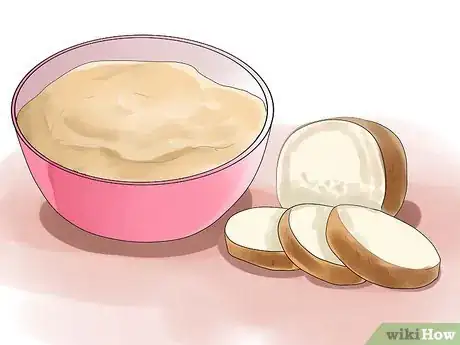
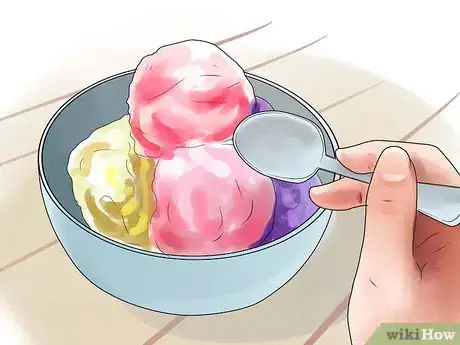

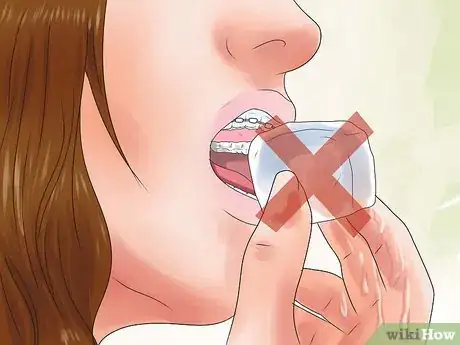
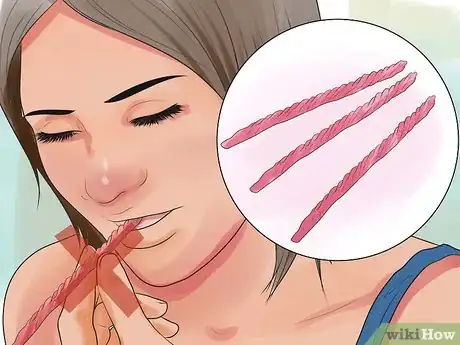
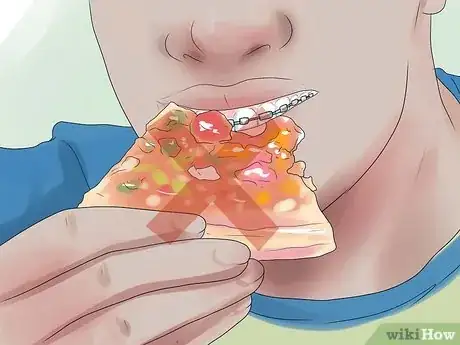
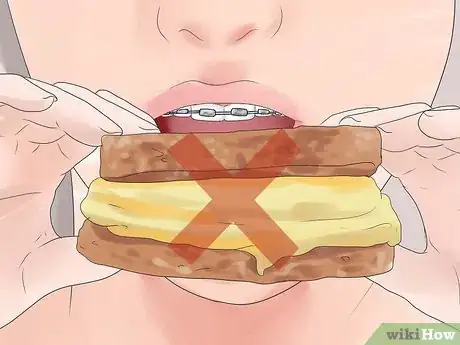
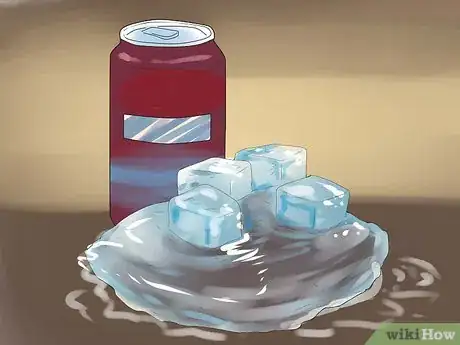
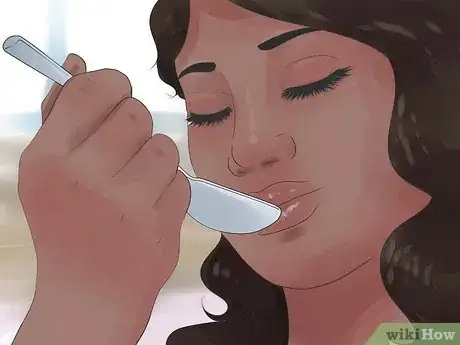

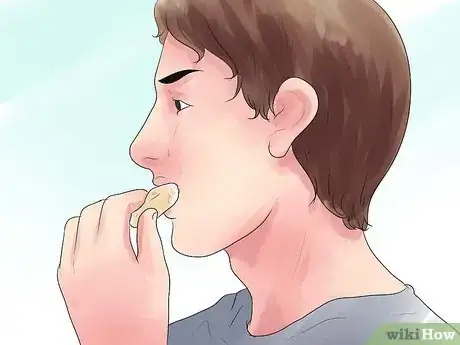
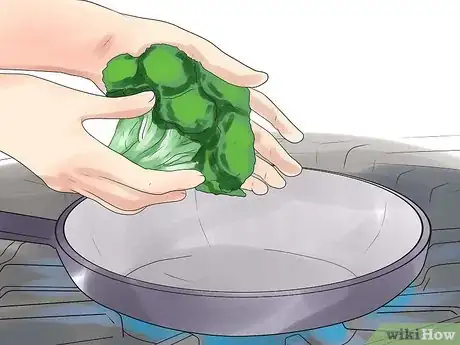
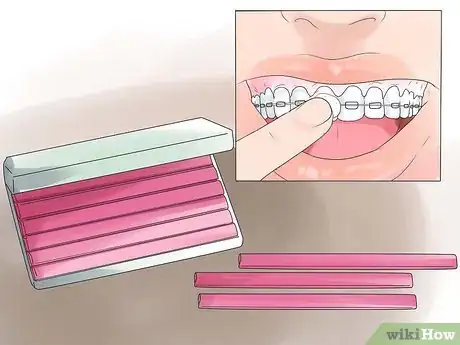
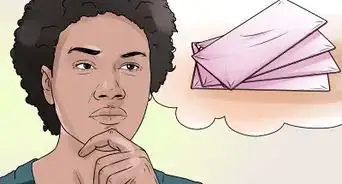
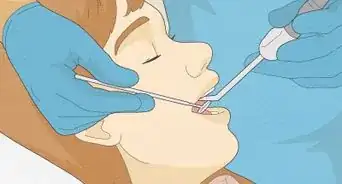
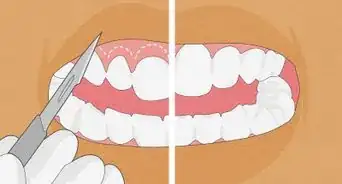
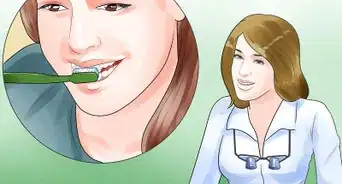
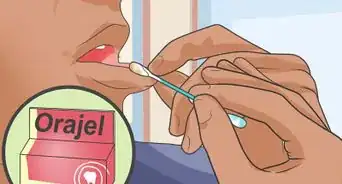

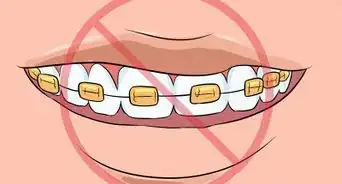
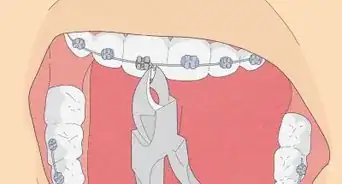
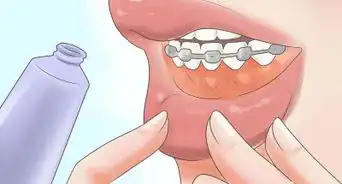
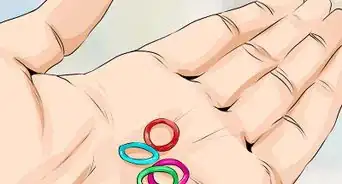
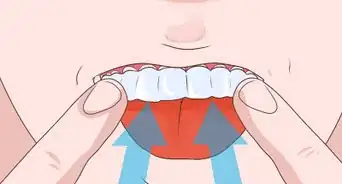
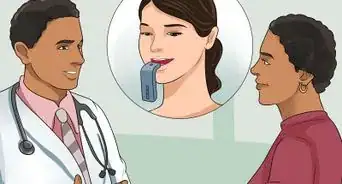
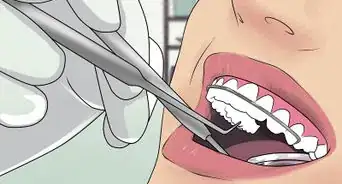
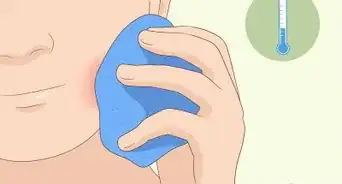










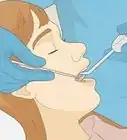
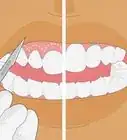
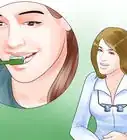



































Medical Disclaimer
The content of this article is not intended to be a substitute for professional medical advice, examination, diagnosis, or treatment. You should always contact your doctor or other qualified healthcare professional before starting, changing, or stopping any kind of health treatment.
Read More...